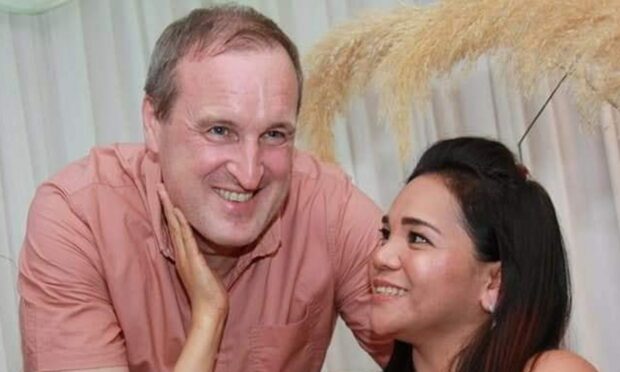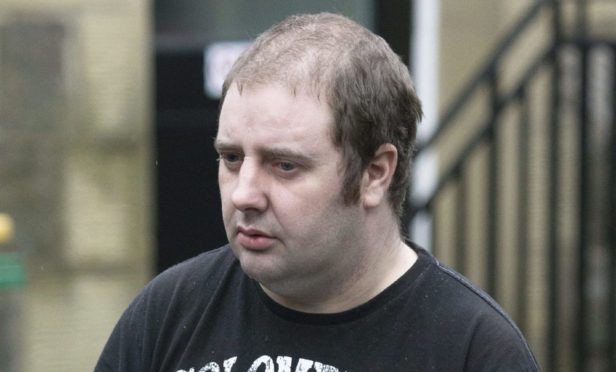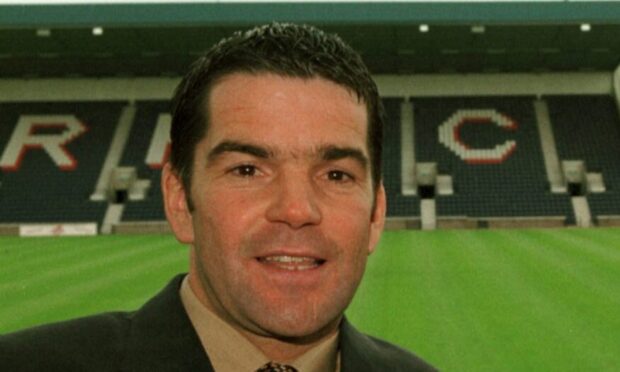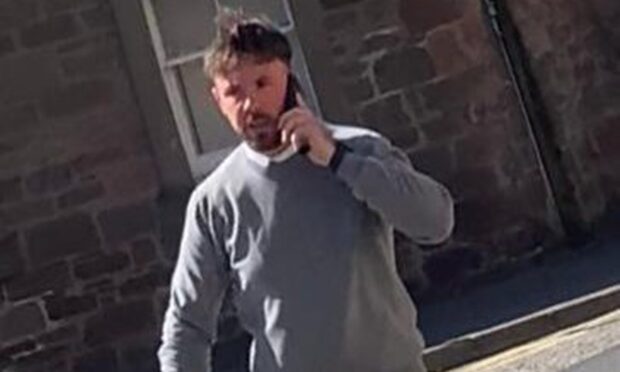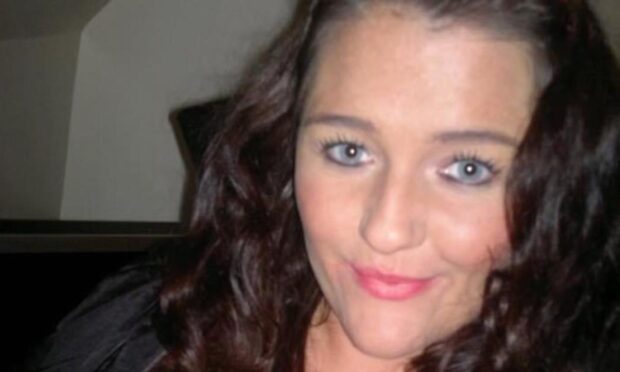The wife of a service engineer killed in a tragic accident at a Perth supermarket has spoken of her grief after an inquiry ruled her husband’s death could have been avoided.
Kenny Heron, 51, died after being crushed beneath a scissor lift at a Co-Op store in Bridgend, Perth, in October 2019.
Mr Heron was carrying out routine maintenance when he removed a “bung” in the lift’s hydraulics while underneath it, causing the lift platform to collapse on him.
He had just finished cleaning and greasing the Danish-built lift and had attempted to bleed the hydraulic system, which had failed to restart.
A fatal accident inquiry has ruled that a failure to provide supporting blocks or props – that could have stopped the lift from falling – contributed to Mr Heron’s death.
Sheriff Derek Hamilton said that if employers Wanzl had provided such blocks, the accident may have been prevented.
Mr Heron’s widow said she felt frustrated it had taken so long to receive answers, but noted the sheriff’s confirmation that crucial equipment wasn’t provided to her husband.
“I just don’t know how to get over this,” she said.
Pretends Kenny is away for work
Emergency services, including Scotland’s Charity Air Ambulance, were scrambled to the Bridgend store at 7.30am on October 11.
Mr Heron was airlifted to Ninewells Hospital in Dundee but died six days later.
Sheryl Heron, 41, had been with Kenny since 2008 after meeting in Abu Dhabi where they both worked.
The pair returned to Scotland to start a new life on Valentine’s Day 2019.
They married on June 30 that year – just four months before the tragic accident.
“It’s been nearly four years since his passing and I cannot count the amount of times I’ve gone to bed crying, then woke up crying,” Mrs Heron said.
“The only way I can cope each day is pretending Kenny is away for work and he’ll come back.”
In a statement issued through solicitors Digby Brown, she said: “It was our anniversary on June 30 so I took his urn to Oban, a place we had always wanted to visit together.
“But while I tried to make the most of the trip I ended up being too sad to go anywhere, so I mostly stayed in the hotel and just talked to the urn.”
Mrs Heron, from Loanhead, near Edinburgh, said: “Kenny was a devoted husband and loving son and brother.
“He served in the Armed Forces, worked overseas and travelled the world. It is not fair his life ended this way.
“I am annoyed it has taken all this time for answers, but at least now we have a sheriff confirmed Wanzl did not provide Kenny with the right equipment and they did not carry out the right safety checks before he died.”
Mrs Heron said that the day of the accident was also the anniversary of her father’s death in 2013. “It just intensifies the pain as I now feel like all the good men in my life are gone,” she said.
She thanked everyone who had supported herself and her husband’s family over the years and asked for privacy to move forward.
‘Corners were cut’
Simon Hammond, a partner at Digby Brown who had supported the family through the inquiry, as well as a separate civil action against Mr Heron’s employers, added: “It is clear from our investigations, and now confirmed in the FAI determination, that corners were cut in the safety, training, equipment, risk assessments and systems of working at Wanzl Ltd.”
He added: “Fatal accidents of this kind are profoundly devastating for families and completely avoidable.
“They simply shouldn’t be happening in modern workplaces and we will continue to support Sheryl and Kenny’s family to ensure they get the answers and recognition they deserve.”
Preventable tragedy
In his findings, Sheriff Derek Hamilton ruled that Mr Heron died after opening a hydraulic port on the scissor lift while the platform was above his head.
This led to oil escaping which allowed the platform to fall, crushing him.
Sheriff Hamilton said safety locking devices that would have prevented the lift from lowering, had not been deployed.
He said wooden blocks or other props could have been used to stop the lift dropping.
The sheriff wrote: “It was said during the inquiry that the dangers of operating a hydraulic system under pressure are obvious and that anyone with a basic knowledge of hydraulics would understand that releasing pressure from the hydraulic system by opening the system would cause the hydraulics to fail rapidly.”
He added: “I do not believe the risks of hydraulic failure are so obvious however that an employer does not need to address them.”
He said that Wanzl only addressed the risks “in a limited fashion”
Sheriff Hamilton said Mr Heron did not set a blocking device to stop the lift from falling.
“Where the need for an external prop or support has been identified by an employer that equipment ought to be provided,” he said.
“Wanzl must have been aware that its senior engineers… were working on an ad hoc basis in relation to deploying blocking devices, and were using their own makeshift devices.
“That is a practice which should stop.”
He said instructions to use blocking devices “must be re-enforced”.
The sheriff added: “If there is a need to use external blocking devices which are not provided on site, that need should be identified and suitable blocking devices should be provided by Wanzl to its engineers.
“I cannot say that is a precaution that if taken, might realistically have resulted in Mr Heron’s death being avoided.”
Wanzl has been approached for comment.
For the latest court cases across Tayside and Fife, join our Courts Facebook page.
